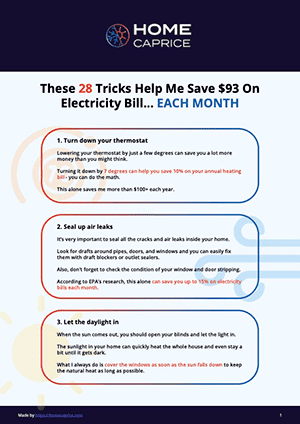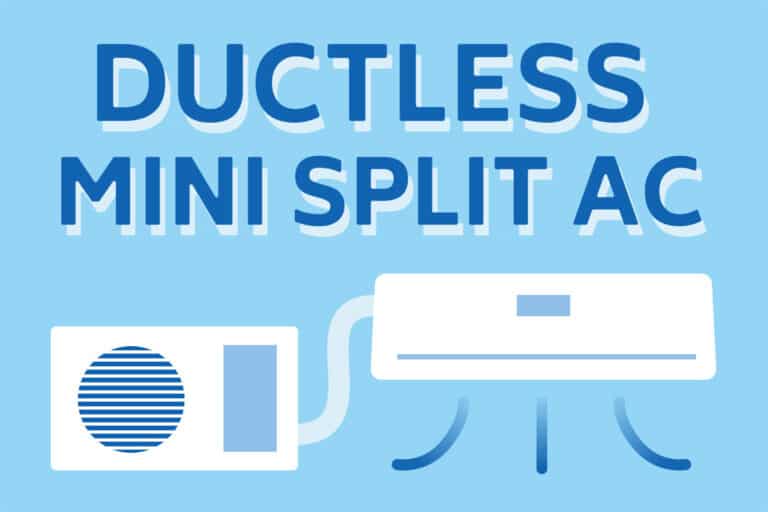If you recently tried to turn your air conditioner off, but it keeps running – don’t panic just yet.
Air conditioners can stop receiving “turn off” requests for multiple different reasons, so it’s important that you know the problem in your case.
The good thing is that it’s usually something within your unit that you can fix by yourself.
Let’s check the 7 most common reasons that cause your AC unit to be unable to turn off.
7 Main Reasons Why Your AC Won’t Turn Off
Clogged air filters
Before inspecting any other part of your air conditioner unit, you should always first check the filters.
In fact, clogged air filters are the most common issue people face with their AC systems.
Clogged air filters will usually lower the ability of your air conditioner and decrease its efficiency. If not maintained for a long time, it can cause severe issues to the whole system.
Dirty evaporator coils
Evaporator coils are responsible for cooling parts inside your home, so it’s essential to inspect and clean them often.
If your evaporator coils get filled with dirt and mold, it will decrease efficiency and it won’t be able to distribute a lot of cool air as before.
Also, your AC might start blowing warm air in the middle of the summer – you don’t want this to happen.
A good thing is that cleaning evaporator coils is very simple.
Simply turn off the whole system, use some kind of detergent and let it stay around 15 minutes on the coils, and gently wipe everything with a soft cloth.
Unusual weather
If you live in a pretty hot area, it might happen that some days the temperature rises quite a bit and your AC is struggling to keep up with that temperature.
You should pay attention to the coolest parts of your unit and check if they work normally as before.
It might happen that indoor temperature keeps rising, so it’s always smart to call a professional to inspect it further.
Also, it would help if you restarted your air conditioner properly.
Too weak air conditioner
People often buy air conditioners that are too small for their homes, so they have to work excessively to reach a certain temperature.
This can overwhelm the motor and it has to speed up cycles and there’s no time for it to rest.
The worst case scenario is that the air conditioner is too weak for your home and it doesn’t even take a pause when cooling your home – this is the fastest way for the unit to overheat and stop working.
To avoid this type of problem, you should always check how many BTUs you need for the size of your room or home.
Here’s a simple BTU calculator that will help you always make the right choice.
Blower fan
The right blower fan settings should always be set to Auto.
What this means is that the AC will be turned on when it’s distributing the cold or warm air, so it won’t overwhelm the unit and it has time to cool down before a new cycle.
On the other hand, if the fan is set to On, it will run continuously without having time for a break.
You’d be surprised how many times people think something is faulty with their unit when in reality they just need to configure the blower fan settings.
Also, you should always keep it on Auto as it’s far more energy-efficient.
Faulty thermostat wiring
It might be the case that one of the wires is damaged or that your wires got exposed.
The good thing is that it’s very easy to inspect for damage to your thermostat wiring.
Just take off the cover and inspect if everything looks alright.
You should check out this step-by-step thermostat wiring guide, so you know what each color presents and how to connect them properly.
Stuck contactor
A contactor is responsible for bringing electricity to your compressor and powering the unit.
When this contactor is open, your motor can’t receive electricity. On the other hand, when it’s closed, electricity can flow naturally.
Over some time, your contactor can get stuck because of overheating and won’t have an electricity break – it will run even if you try to turn it off.
If you want to inspect it further, turn off the power and tap on the contactor and check how stable it is.
A stuck contactor can sometimes even cause your AC’s lights to start flickering.
This is a bit more complex, so I’d recommend calling a professional for further inspection.


Download this FREE cheat sheet to find 28 tricks that can help you save on your electricity and heating bill each month.
Click here to get a FREE Cheat-Sheet
![Trane XL16i Air Conditioner After 1 Year [In-Depth Review]](https://homecaprice.com/wp-content/uploads/trane-xl16i-review-768x512.png)
![Delonghi Pinguino Portable Air Conditioner [In-Depth Review]](https://homecaprice.com/wp-content/uploads/DeLonghi-Portable-Air-Conditioner-768x512.png)
